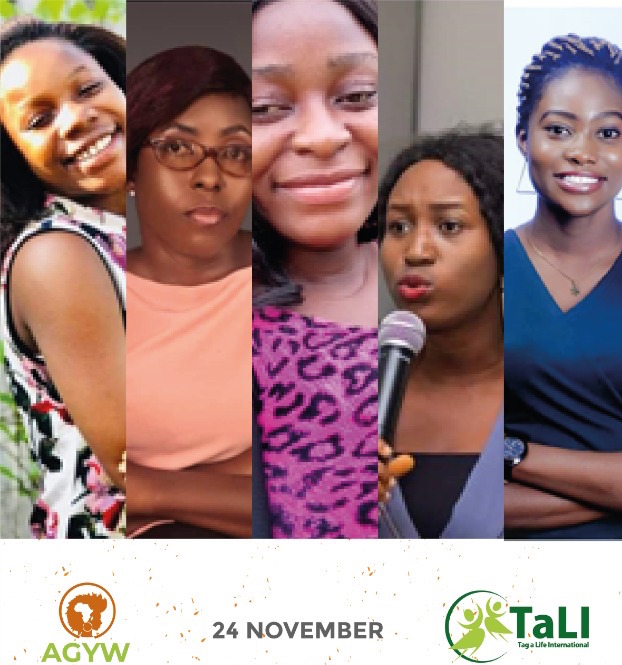|
Getting your Trinity Audio player ready...
|
The Adolescent Girls and Young Women (AGYW) Africa conference being hosted by Tag A Life International laid bare challenges affecting this group on the continent including West African countries comprising Sierra Leone, Liberia, Nigeria, and Ghana.
Representatives of AGYW from Sierra Leone said the country is mainly affected by natural disasters as well as diseases such as Ebola (2014) and currently COVID-19.
Insecurities resulting from 11 years of civil wars have also been of concern as AGYW are the most affected. There are also challenges associated with GBV, domestic violence, and rape.
Culturally, it is believed that men should be decision-makers. Women are therefore not given an opportunity to occupy decision-making positions. AGYW in some cases are not able to take up leadership positions due to patriarchy and religious beliefs.
Human trafficking is another challenge that affects AGYW in Sierra Leone. The practice of female genital mutilation (FGM) is rampant and is usually done in septic conditions which may result in infections and complications during childbirth.
On Covid 19, society has given AGYW caregiver roles. No special protection was given to them by the government. There was also a high prevalence of teen pregnancies and school dropouts. There were also food shortages due to restricted movement. It is important for policymakers to realise that “women can play a huge role in peace-building efforts” but this is often viewed to be an exclusive role for men.
In Liberia, there is a population of almost 5 million people. Presenters bemoaned the fact that violence against women is perceived as socially acceptable. Gender inequality is very high. Child marriage and teen pregnancy are still very high. Neonatal deaths are high and 40 percent of women deliver without the assistance of a trained midwife. Education efforts for AGYW are hampered by the fact that there is no access to safe water in schools while 74 000 primary school-going-age children do not complete primary education with AGYW being the most affected.
Women are exposed to a high rate of GBV. They are victims of FGM. Communities are affected by human trafficking. Usually, girls trafficked internally are used for selling wares in the streets whilst those trafficked externally are forced to engage in prostitution for the benefit of their masters. Sexual harassment is rampant in schools. University girls may be forced by circumstances to have sex with several educators since they cannot afford the fees. This has the effect of exposing them to diseases.
Nigeria is a country that accounts for more than 200 million people of the African population. AGYW are affected in areas of education at all levels. Girls are not given priority if compared to the boy child. Due to Covid 19, the closure of schools for prolonged times affected AGYW severely. There was insecurity in schools due to the activities of Boko Haram. Young girls were being kidnapped from schools resulting in parents stopping their AGYW from attending school. During Covid 19, AGYW were denied access to justice due to restricted movement. Delays by courts in dealing with cases resulted in many people settling out of court. This had the effect of letting perpetrators go unpunished.
In Ghana, due to Covid 19, AGYW had to drop out of school especially those in rural areas. Covid 19 increased the domestic violence. 19 percent of children between the ages of 15 and 19 suffered violence and were not able to access formal support. FGM increased in Ghana due to a lack of social support services. About 301 girls were impregnated every day in 2020 and the youngest to be made pregnant was a 10-year-old.
Loss of jobs led to psychological harm especially to family heads who then would vent out their anger on their vulnerable family members. Interventions such as online events were organised to ensure that there was continuous sharing of information on issues affecting AGYW. These allowed transfer of skills and knowledge.






